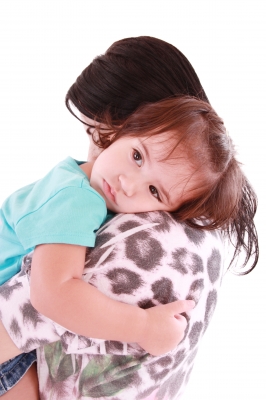 In many Western countries, the nuclear family, in which both parents are members of the household, is believed to be ideal. In Jamaica and the wider Caribbean, however, the nuclear family is often the exception rather than the rule. A large proportion of families in the region still consist of only one parent, usually the mother, with fathers adopting a marginal role in child-care and nurturance. According to the UNICEF publication “Situation Analysis of Jamaican Children,” over 45% of the households in Jamaica are female-headed. Such family structures are generally accepted as the norm in the Caribbean, and are often viewed as functional responses to the problems faced by people living in the region. Continue reading
In many Western countries, the nuclear family, in which both parents are members of the household, is believed to be ideal. In Jamaica and the wider Caribbean, however, the nuclear family is often the exception rather than the rule. A large proportion of families in the region still consist of only one parent, usually the mother, with fathers adopting a marginal role in child-care and nurturance. According to the UNICEF publication “Situation Analysis of Jamaican Children,” over 45% of the households in Jamaica are female-headed. Such family structures are generally accepted as the norm in the Caribbean, and are often viewed as functional responses to the problems faced by people living in the region. Continue reading
Category Archives: Developmental Psychology
Parenting and Depression among Children/Adolescents: A Brief Literature Review
 Various studies have recorded a significant link between depression and parenting styles characterized by low care and high control (McGinn, Cukor, & Sanderson, 2005; Mezulis, Hyde, & Abramson, 2006). Using the Parental Bonding Instrument (PBI) developed by Parker, Tupling and Brown (1979, cited in Enns, Cox & Clara, 2002) , McGinn et al. (2005) were able to separate adolescents into four categories according to the style of parenting by which they were raised. One of these categories, affectionless control, closely resembles the authoritarian parenting style in Baumrind’s classification system and is characterized by low care and high overprotection. McGinn et al. (2005) found that persons exposed to this parenting style were more depressed than persons who experienced a different style of parenting. Another group of researchers (Radziszewska, Richardson, Dent, & Flay, 1996, cited in McPherson, 2004) found that uninvolved (or neglectful) parenting was associated with the highest level of depressive symptoms among adolescents while the authoritative parenting style was significantly related to lower symptom levels. Continue reading
Various studies have recorded a significant link between depression and parenting styles characterized by low care and high control (McGinn, Cukor, & Sanderson, 2005; Mezulis, Hyde, & Abramson, 2006). Using the Parental Bonding Instrument (PBI) developed by Parker, Tupling and Brown (1979, cited in Enns, Cox & Clara, 2002) , McGinn et al. (2005) were able to separate adolescents into four categories according to the style of parenting by which they were raised. One of these categories, affectionless control, closely resembles the authoritarian parenting style in Baumrind’s classification system and is characterized by low care and high overprotection. McGinn et al. (2005) found that persons exposed to this parenting style were more depressed than persons who experienced a different style of parenting. Another group of researchers (Radziszewska, Richardson, Dent, & Flay, 1996, cited in McPherson, 2004) found that uninvolved (or neglectful) parenting was associated with the highest level of depressive symptoms among adolescents while the authoritative parenting style was significantly related to lower symptom levels. Continue reading
Impact of Parenting Styles on Children and Adolescents
 According to Baumrind’s theory, the way in which children are raised has a major impact on their functioning and well-being. She noted that the manner in which parents meet the joint needs of children for nurturance and limit-setting greatly influences their degree of social competence and behavioural adjustment (Baumrind, 1991, cited in Slicker, 1998). Of the four parenting styles mentioned in Baumrind’s typology, authoritative parenting appears to have the most positive behavioural and emotional outcomes. Children of such parents tend to be more socially competent and responsible, more self-reliant and confident and less susceptible to both internalizing and externalizing problems than children exposed to other parenting styles. (Patock-Peckham & Morgan-Lopez, 2007). Continue reading
According to Baumrind’s theory, the way in which children are raised has a major impact on their functioning and well-being. She noted that the manner in which parents meet the joint needs of children for nurturance and limit-setting greatly influences their degree of social competence and behavioural adjustment (Baumrind, 1991, cited in Slicker, 1998). Of the four parenting styles mentioned in Baumrind’s typology, authoritative parenting appears to have the most positive behavioural and emotional outcomes. Children of such parents tend to be more socially competent and responsible, more self-reliant and confident and less susceptible to both internalizing and externalizing problems than children exposed to other parenting styles. (Patock-Peckham & Morgan-Lopez, 2007). Continue reading
Family Structure and Aggression among Children/Adolescents
Several features of the home environment are known to have a significant impact on aggression among children and adolescents. One feature that has received much attention in the psychological literature is family structure. Sheline, Skipper and Broadhead (1994, cited in Summers and Bakken, 2006) found that when compared to non-violent children, violent youngsters are about six times more likely to have unmarried parents and 11 times as likely to live with their fathers only. Other studies suggest that a lack of contact with fathers may also increase aggression. Pfiffner, McBurnett, and Rathouz (2001, cited in Summers & Bakken, 2006), for example, found a gradual rise in violent behavior starting with youths who lived with both parents, increasing for those who had some contact with their fathers and increasing further for those who had no contact with their fathers. Similarly, Fagan and Rector (2000, cited in Smith & Green, 2007), found that children from father-absent households usually harbor feelings of hostility, associate with deviant peers and get involved in negative activities. Continue reading
Parenting Styles
 Baumrind’s model of parenting styles is arguably the most influential framework that has been proposed for classifying styles of parenting. Based on her studies, Diana Baumrind delineated various parenting styles which can be classified along two dimensions: responsiveness (warmth) and demandingness (control). She defined parental responsiveness as “the extent to which parents intentionally foster individuality, self-regulation, and self-assertion by being attuned, supportive, and acquiescent to children’s special needs and demands” (Baumrind, 1996, p. 410, cited in Grolnick, 2003, p. 6). Continue reading
Baumrind’s model of parenting styles is arguably the most influential framework that has been proposed for classifying styles of parenting. Based on her studies, Diana Baumrind delineated various parenting styles which can be classified along two dimensions: responsiveness (warmth) and demandingness (control). She defined parental responsiveness as “the extent to which parents intentionally foster individuality, self-regulation, and self-assertion by being attuned, supportive, and acquiescent to children’s special needs and demands” (Baumrind, 1996, p. 410, cited in Grolnick, 2003, p. 6). Continue reading


